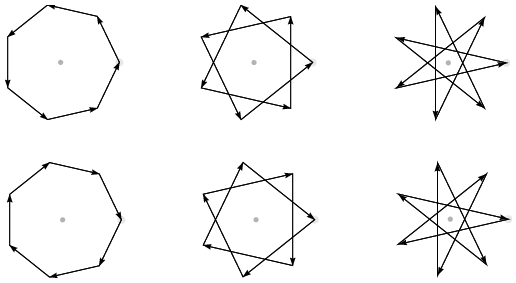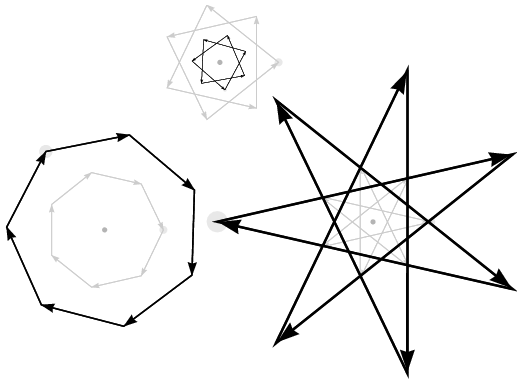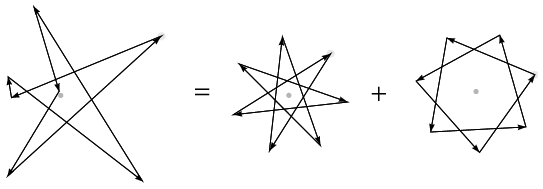
 |
| The six elementary signals. |
To produce a linear combination, each of the regular heptagons
may be scaled and rotated, as shown in the following image.
That operation, in the complex plane, is achieved by multiplying
the vertex coordinates by a complex constant ("coefficient").
 |
| Elementary signals (gray) multiplied by their coefficients. Light gray disks indicate the first point of each signal. |
The heptagons, in scaled and rotated form, are then added "point-wise",
i.e. the first points of each heptagons are summed up to yield the
first point of the signal, the second points likewise etc.
What we have stated in the first paragraph is the fact that this operation can be performed in two directions: "Analysis", finding the heptagons that add up to a given signal, as well as "Synthesis", adding up a set of scaled and rotated regular heptagons. Taking a signal and performing analysis followed by synthesis will yield the original signal. In the same vein, take the six regular heptagons, scaled and rotated, and then performing synthesis followed by analysis will produce the six heptagons at the original scale and rotation.
The following examples have therefore been written as equations, and they can be read in both directions. Only those regular heptagons that have a non-zero coefficient are shown.
 |
 |
| Two examples. |
JavaSketchpad code produced by the jsp.awk script. See Welcome.jsp for the source.
26. Jan 1999, Sebastian Lisken